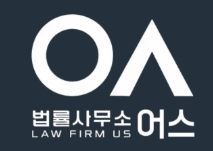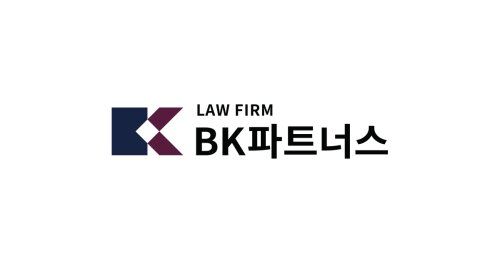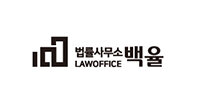Best Discrimination Lawyers in South Korea
Share your needs with us, get contacted by law firms.
Free. Takes 2 min.
Or refine your search by selecting a city:
List of the best lawyers in South Korea
About Discrimination Law in South Korea
Discrimination in South Korea encompasses a range of issues related to unfair treatment based on factors such as race, gender, age, disability, and sexual orientation. The South Korean government has implemented various laws and policies to combat discrimination and promote equality. Despite these efforts, challenges persist due to societal attitudes and limited awareness about rights. The Korean legal framework strives to protect individuals from discriminatory practices, especially in employment and access to services.
Why You May Need a Lawyer
Legal assistance may be necessary in several situations involving discrimination. These include workplace discrimination, where employees face unfair treatment based on their gender or race, cases of denied services or opportunities due to disability or age, and issues of bias in educational institutions. A lawyer can help you understand your rights, gather evidence, and represent you in legal proceedings to ensure justice and compensation if applicable.
Local Laws Overview
Key discrimination laws in South Korea include the Equal Employment Opportunity Act, which prohibits employment discrimination based on gender, and the Act on the Prohibition of Discrimination against Disabled Persons, which promotes equal opportunities. The National Human Rights Commission of Korea Act established a commission to handle discrimination complaints and promote human rights. Importantly, while laws exist, their enforcement can vary, necessitating legal insight for those affected.
Frequently Asked Questions
What constitutes discrimination under South Korean law?
Discrimination involves unfair treatment based on race, gender, age, disability, religion, or other protected attributes. It can occur in various areas, including employment, education, access to services, and housing.
What should I do if I experience workplace discrimination?
Document incidents of discrimination and seek advice from a legal expert. You can report the matter to the National Human Rights Commission or pursue legal action if necessary.
Are there protections against discrimination for foreign workers in South Korea?
Yes, foreign workers are protected under South Korean discrimination laws, which apply to all individuals regardless of nationality.
Can I report discrimination anonymously?
Generally, formal complaints require the complainant’s identity, although anonymous tips can sometimes prompt an investigation by relevant bodies.
How can I prove discrimination in court?
Gather evidence such as discriminatory comments, witnesses to unfair treatment, and any relevant documents. A lawyer can assist you in organizing and presenting your case.
What is the role of the National Human Rights Commission of Korea?
The commission investigates discrimination complaints, provides recommendations, and works to raise awareness about human rights issues.
Are there legal protections for LGBTQ+ individuals?
Legal protections for LGBTQ+ individuals are limited in South Korea. Advocacy groups are working towards more comprehensive anti-discrimination laws.
What are the possible outcomes of a discrimination lawsuit?
Possible outcomes include compensation for damages, reinstatement of a job position, required policy changes, or disciplinary action against offending parties.
How long does it take to resolve a discrimination case?
Resolution times vary based on the complexity of the case and the legal avenues pursued. Cases can take from several months to a few years.
Can I settle a discrimination case out of court?
Yes, many discrimination disputes are settled through mediation or negotiation before reaching court, often resulting in mutually agreed upon resolutions.
Additional Resources
Several resources can provide support and guidance, including the National Human Rights Commission of Korea, local legal aid organizations, and advocacy groups dedicated to specific discrimination issues such as gender equality or support for disabled individuals.
Next Steps
If you need legal assistance concerning discrimination, consider contacting a lawyer with experience in human rights or discrimination law. Gather your documentation and evidence, and seek a consultation to understand your legal options. Engaging with support organizations can also provide additional guidance and resources as you navigate this process.
Lawzana helps you find the best lawyers and law firms in South Korea through a curated and pre-screened list of qualified legal professionals. Our platform offers rankings and detailed profiles of attorneys and law firms, allowing you to compare based on practice areas, including Discrimination, experience, and client feedback.
Each profile includes a description of the firm's areas of practice, client reviews, team members and partners, year of establishment, spoken languages, office locations, contact information, social media presence, and any published articles or resources. Most firms on our platform speak English and are experienced in both local and international legal matters.
Get a quote from top-rated law firms in South Korea — quickly, securely, and without unnecessary hassle.
Disclaimer:
The information provided on this page is for general informational purposes only and does not constitute legal advice. While we strive to ensure the accuracy and relevance of the content, legal information may change over time, and interpretations of the law can vary. You should always consult with a qualified legal professional for advice specific to your situation.
We disclaim all liability for actions taken or not taken based on the content of this page. If you believe any information is incorrect or outdated, please contact us, and we will review and update it where appropriate.
Browse discrimination law firms by city in South Korea
Refine your search by selecting a city.













